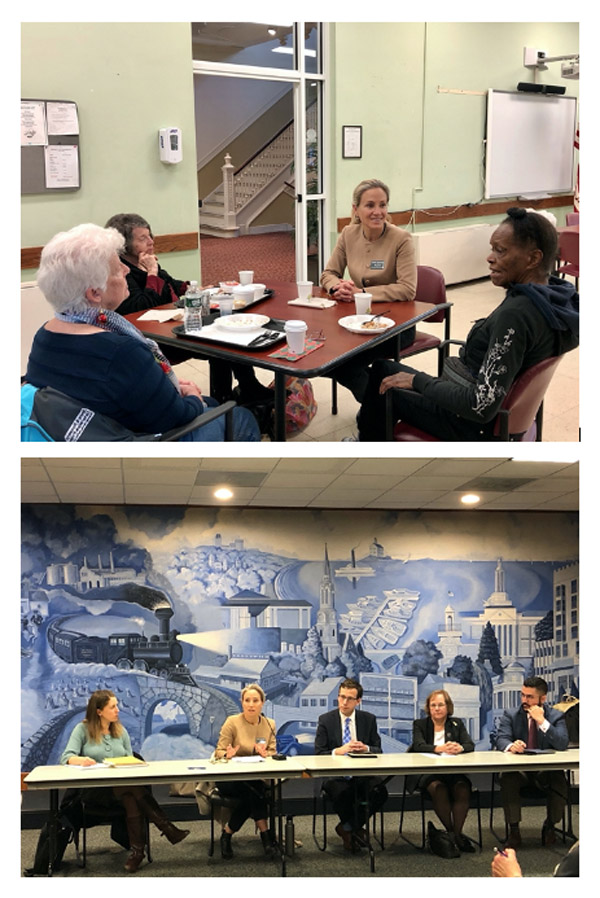Sen. Cohen Welcomes Substantial State Investment In Environmental Projects
State Senator Christine Cohen (D-Guilford), who is Senate Chair of the legislature’s Environment Committee, today welcomed the news that the State Bond Commission is poised next week to approve nearly $51 million for a variety of pro-environment investments in Connecticut, from clean water projects to energy-efficient buildings, soil and groundwater clean-ups, the reduction of greenhouse gas emissions and the purchase of open space.
The State Bond Commission will approve these projects when it meets at 10:30 a.m. on Friday, December 18, 2019 in the Legislative Office Building in Hartford.
“Time and time again the State of Connecticut has stepped-up to invest in our environment, whether it be buying open space, funding local clean water projects, cleaning up brownfields and contaminated soil, or making energy-efficiency improvements and reducing greenhouse gas emissions. Every little bit helps. Every little bit saves local taxpayers money, and every little bit contributes to our exceptional quality of life here in Connecticut,” Sen. Cohen said.
Just two weeks ago, Sen. Cohen was recognized as a “2019 Environmental Champion” by the Connecticut League of Conservation Voters. Her award was based on her effectiveness in leading passage of, and voting for, pro-environment legislation.
The environment-related projects on the State Bond Commission agenda include:
- $23,600,000 for the Clean Water Fund to provide grants to local cities and towns to assist with their local Clean Water Fund projects. The Department of Environmental Protection will release the funds when individual projects are ready to proceed. Under state law, a combined sewer project receives a grant for 50% of the cost of the project and a loan of the remaining 50%; other eligible water quality projects receive a grant of 20% and a loan of 80%. Projects involving nitrogen removal (nitrogen contributes to plant growth and algae blooms and reduces the oxygen levels in water for fish) receive a grant of up to 30% and a loan for the remainder of the cost of the project.
- $5,000,000 for grants to towns to purchase open space for conservation or recreation purposes. These funds can be used to provide grants to cities and towns, nonprofit land conservation organizations, or water companies to acquire land or a permanent interest in land for open space and watershed protection. Properties acquired under this program have a conservation and public access restriction placed on the land.
- $12,000,000 for energy-efficiency improvements at the Northern Region Department of Correction facilities (Osborn, Northern, MacDougal and Walker prisons). The improvements are expected to provide significant energy cost savings.
- $8,277,900 for environmental compliance, soil and groundwater remediation, hazardous materials abatement, demolition, salt shed construction and renovation, storage tank replacement, and environmental emergency response at state-owned properties or related to Department of Transportation operations.
- $1,000,000 for the ongoing removal of severely damaged, decayed or distressed trees in state parks and recreation areas.
- $1,000,000 for energy audits of larger state facilities to help create plans to achieve the sustainability goals contained in the Governor’s Executive Order Number 1, which sets a goal of a 34 percent reduction in greenhouse emissions from 2014 levels by 2030.



